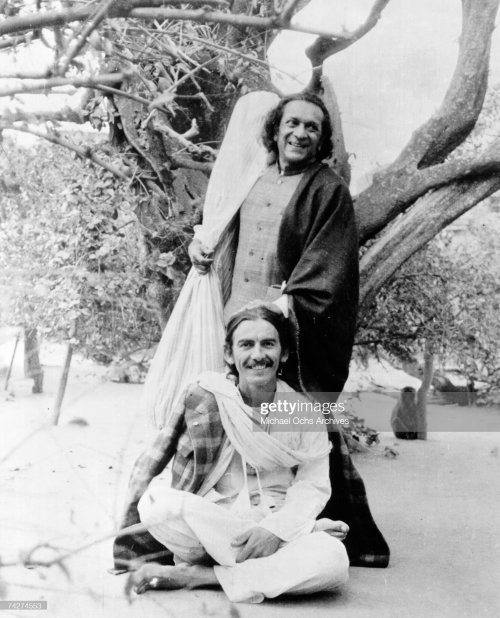#fits queue like a glove
George Harrison in Rishikesh, India, 1968; photo by Mal Evans.
“Firstly, I think too many people here have the wrong idea about India. Everyone immediately associates India with poverty, suffering and starvation but there’s much, much more than that. There’s the spirit of the people, the beauty and goodness. The people there have tremendous spiritual strength which I don’t think is found elsewhere. That’s what I’ve been trying to learn about.” - George Harrison, NME, 27 May 1967 (x)
Post link
George Harrison, Ringo Starr, and Billy Preston, Bar One, 9 October 1990; photo by The LIFE Picture Collection/Getty Images.
“Nancy and I met George in 1990, at an L.A. dinner party. […] George was perfectly friendly throughout the dinner — in fact, he brought along a tape of the still-unreleased second Traveling Wilburys album, which he eagerly played for all of us on the Donners’ stereo like a proud teen showing off his garage band. I found that sweet. But Nan and I maintained a cordial distance from him, fearful that the word ‘Beatle’ would come out of our mouths in an involuntary, Tourette’s-like outburst.
After dinner, we all retired to the Donners’ screening room, where Dick had arranged for us to view an advance reel of The Hunt for Red October. I ended up sitting right next to George on the couch, with Nancy on my other side. Dick Donner, an outgoing, no-B.S. guy with a thick thatch of white hair, announced, ‘Does anyone mind if I smoke a doobie?’ […] I gently nudged George, who was engrossed in the movie, and offered him the spliff. He looked at it, smiled, and in his best documentary-narrator’s voice said, ‘Ah, the sixties!’ He happily accepted the funny cigarette and took several drags on it […] [and] became totally amped, very gregarious and chatty, talking right over the movie.[…]
‘Guys,’ [Lauren Shuler Donner] whispered, ‘shhhhh!’
George and I both went quiet like reprimanded kids in the fourth grade. After a moment, I turned to him and whispered, ‘Way to go, asshole!’ The two of us burst out laughing, eliciting, now from the entire group, a new round of shushing. […]
Just a few months after his death, I was in Bungalow 8, a New York club that Paul Shaffer had dragged me to, when I noticed a skinny fellow who was the spitting image of George, only young George, coming right toward me. Before I could say anything, this young man embraced me in a tender hug. And then pulled back to explain himself. ‘I’m Dhani Harrison,’ he said. ‘One of the last things my father told me was that if I ever come across people who were important to him, I should give them a hug.’” - Martin Short, I Must Say: My Life As A Humble Comedy Legend(x)
Post link
George Harrison with Mukunda Goswami in Vrindavan, India, 1996. Photo by Prithu Prabhu (?).
“[George] also wrote [songs] to remind himself. People sometimes accused him of preaching (laughs). But you know, he was really preaching to himself. He wasn’t trying to say, ‘You be like this because I’m already like this.’ No, he was always trying to remind himself. And that’s the reason he liked India so much, because he said that, ‘Everywhere you went, there was a reminder.’” - Olivia Harrison, KSHE 95, 26 December 2014 (x)
Post link
George Harrison promoting the 1987 television documentary It Was 20 Years Ago Today. Photo © Granada.
“A lot of things to do with The Beatles is as if it was a previous life. It’s as if it happened in this dream. I don’t go around thinking I’m a Beatle or feeling like anything; I tend to live now, here, this day.” - George Harrison, CREEM, December 1987/January 1988 (x)
Post link
George Harrison (aka Carl Harrison for this tour) onstage backing Johnny Gentle at Alloa Town Hall, 20 May 1960. Photo © Johnny Gentle/Gavin Askew.
TheScotland tour, post 2 of 2.
“I remember getting my picture taken with George Harrison. He was very good-looking, they all were I suppose, but George was very cute. He was about the same age as us so that probably helped a bit. But we were just happy to be talking to the band. We asked them what they were called and they said ‘the Silver Beetles.’ It was a real thrill because to us they were proper musicians. There was a a wee bit of flirting, but nothing out of the ordinary.
[…] [The Beatles] were a lot more rock ‘n’ roll sounding than Johnny Gentle, it was more powerful. […] I wasn’t supposed to be at that dance, I told my parents I was going to a friend’s house. But I was found out when I appeared on the front page of the local paper with George Harrison! Actually, they weren’t too bad about it, but I had to clean all the rooms in the house before I could go out the next week.” - Mary Craig, concert attendee, The Beatles In Scotland(x)
Post link
George Harrison in the gardens of Friar Park, 1978. Photo by Mike Salisbury.
“[George] thought that everyone, as a matter of course, should have themselves regularly overwhelmed by nature. He used to say that all unused buildings should be knocked down and gardens put in their place.” - Olivia Harrison, Evening Standard, 12 May 2008 (x)
Post link
Photos by Carinthia West, Terry O’Neill, Tom Pilson/REX/Shutterstock, Susan Flood, Tim P. Whitby/Getty Images for Universal Music Group, David M. Benett/Dave Benett/Getty Images.
Happy birthday to Olivia Harrison!
Q: “What’s the secret to endurance in a relationship?”
Olivia Harrison: “I think in life, first of all, you have to have — respect is really important, but also I think you have to know where you’re going in your own soul and in your own life, and in your own — who you are; who do you want to be in life? And you need a partner to help you be that best person you can be. And sometimes you’re not that best person, but I think that’s the goal. I think when you have a goal like that? You know, George always wanted to be… a light-hearted person, and he was a very intense person, and I think you need a higher goal to stay together. I think that’s the real reason. Because then your own problems don’t seem like such big deals.” […]
Q: “So how are we supposed to find which is our path?”
OH: “Oh, that’s a good question. Especially now in this day and age, when everything is a big diversion. I think nature — I think the answer is in nature, I think the answer is in silence, and not being afraid of nothingness, not being afraid of the abyss, the void, the silence. I think that’s where man can be saved from where we are now. I really do. I think you need to go sit somewhere in silence and be overwhelmed by nature. That seems to be a way to reset our lives.” - Cultura Pop, 19 October 2017 (x)
Post link
George Harrison wearing a “Stamp Out The Beatles” sweatshirt (and a “Yellow Submarine For Peace” badge from New York’s Workshop In Non-Violence) during a recording session on 17 May 1967. Photos by Leslie Bryce for The Beatles Book monthly.
“Just to show how little he minds the knockers who are trying to push the Beatles down these days, George actually wore a ‘Stamp Out the Beatles’ jersey to recent recording sessions. We thought that he might not want us to photograph him in it; but he was only too happy for us to take the pic […], and seemed to be treating the whole thing as a huge joke.” - The Beatles Book, July 1967 (x)
Post link
George Harrison, photographed by Ringo Starr; photo © Ringo Starr.
Q: “Do you think people have got the wrong impression of you over the years?”
George Harrison: “In that they think I’m serious, yeah. I have serious moments but I’m totally the opposite really. I think with ‘My Sweet Lord’ period and ‘Bangla Desh’ and the late ‘60s it did become political and everybody did get a bit serious but I never lost a sense of humor. That’s why people couldn’t believe I was making Monty Python’s Life of Brian.”
Q: “They thought of you as a spiritual, religious type locked away in the house in Henley.”
GH: “Well my concept of religion and spirituality isn’t Cliff Richard and the Shadows and Billy Graham. It’s very free, you know.” - Q, 1988“I think I’ve had an image, people have had a concept of me being really straight ‘cause I was the serious one or something. But actually, I mean, I’m the biggest lunatic around; one of them anyway… I don’t know, in a way I’m serious, but not necessarily about the things people would think I’d be serious about. And I’m completely comical, you know? I like craziness. I had to in order to be in The Beatles. [laughs]” - George Harrison, A Personal Music Dialogue With George Harrison At 33 & 1/3, 1976
“I’ve always been very silly [chuckles]… And the thing is if I don’t crack a smile, my face just looks serious anyway. And I think what they did is, they pigeonholed me into this thing, Oh, he’s the mystical one, the spiritual one, or he’s the boring one, or whatever. And consequently they missed out on some of the jokes I was putting in there [the songs].” - George Harrison, In The Studio With Redbeard, 1992
Q: “What’s the most popular misconception about you that people have?”
George Harrison: “That I am serious. Pisces are depicted as two fish going in opposite directions. Many people do not see my humorous side.” - MSN web chat, 15 February 2001 (x)
Post link
George Harrison at a press conference launching Derek Taylor’s book “Fifty Years Adrift” in Sydney, Australia, November 1984. Photo by Peter Carrette Archive/Getty Images.
“George, oh George. He was one of the nicest and most certainly one of the funniest people I have met in this business. He had his moments, we all do, but to portray him as sour or negative or untalented as some have is so far from anything that I ever saw during my time with him, both with The Beatles and afterwards. The other Beatles were funny, but I have to say that he most certainly was the funniest.
[…] But, of course, George was also Mr. Nice Guy. There was a couple getting married who he had met somewhere along the way. They weren’t famous or even in the music business, just an ordinary couple that George, the most ordinary superstar you’d ever hope to meet, happened to cross paths with. One evening he asked me to record a special message that he made for them, along with him playing them a song. We put it on a cassette and sent it to them so they could play it at their wedding. Who wouldn’t love George?” - Ken Scott, Abbey Road To Ziggy Stardust(2012)“Working with George [Harrison] was always a joy.” - Ken Scott, Premier Guitar, 19 March 2010
“[George] was so much more than The Beatles. As a guitarist he eventually got his own unique sound when you could always tell it was him. There are very few guitarists that can say that.” - Ken Scott, Finding Zoso, 4 December 2012 (x)
Post link
George Harrison and Richie Havens, 1969; photographer unnamed, photo © akg images.
“I thought ‘Here Comes The Sun’ was the happiest, simplest, clearest wishing well for the world of all the songs that they [The Beatles] had ever done. It is a message for all of us. The sun is going to come up tomorrow, no matter what. You’ve got to be prepared, it’s going to be all right. Things are not as hard as you’re making it. That was the message of the time that needed to be heard. I said that to George and he said, ‘It is a song about finding the light, the real light, the sun.’” - Richie Havens, British Beatles Fan Club, 2011 (x)
Post link
George Harrison and Ravi Shankar appearing on VH1 for an interview conducted by John Fugelsang, 1997. Photo by Marc Bryan-Brown/Corbis Outline.
“If you want to know anything in this life, you just have to knock on that door — whether it be physically on somebody else’s door or, which I was lucky to find, is through meditation. It’s all within. Because if you think about it, there isn’t anything — I mean, in creation, the whole of creation that is perfect. You know, there is nothing that goes wrong with nature — only what man does, then it goes wrong.
But we are made of that thing, the very essence of our being, of every atom in our body, is made from this perfect knowledge, this perfect consciousness. It superimposed on that is through, if I can use that word, the tidal wave of bullshit that goes through the world. So we’re being barraged by bullshit. But not only that, the way the world is structured or the way creation is structured, we have duality which says: yes/no, good/bad, loss/gain, birth/death, and it’s this circle that you get trapped in. It’s like the Memphis blues again. And that’s the hardest thing to understand: what is causing both of these things? What is causing day and night, good and bad? It’s all the cause and this is the effect. I mean, we’re getting really transcendental here, but… our physical being is really, only a very, very subtle level it’s just like the sap in a tree is the sap and it runs throughout all parts of the tree. It’s like that. Our bodies are manifested into physical bodies but the cause, the sap, is pure consciousness, pure awareness. And that is perfect knowledge, but we have to tap into that to understand it. And that’s really why for me this record [‘Chants of India’] is important because it’s another little key to open up the within, for each individual to be able to see it, and turn off… ‘turn off your mind, relax and float downstream.’” - George Harrison, VH1, 1997 (x)
Post link
Mark McEwen with George Harrison and Ravi Shankar, May 1997; photos courtesy of iammarkmcewen.blogspot.com, and © Mark McEwen.
“We discussed Ravi’s music, his new album [Chants Of India], why George thought it was so important, and then came the moment when I brought up the subject I wasn’t supposed to bring up. ‘You were in the Beatles, the biggest band in the world,’ I said. 'You met kings and queens and talked to movie stars and captains of industry. What was it about this man that made you stop?’ George’s eyes twinkled as he answered. 'We’d met everybody and hung out with everyone and all kinds of people told us we were this and we were that. Truth was, I was tired of all of it and then this little man (and there he turned and smiled at Ravi) came into my life and made it worthwhile again.’ He talked about how Ravi knew very little of who the Beatles were. George talked about how special and unique Ravi was. He talked of how Ravi taught him to see the world in a totally different way. And more.” - Mark McEwen, iammarkmcewen.blogspot.com, 23 August 2015 (x)
Post link
Clip from The Southbank Show, 1997.
“[After a final mixing of a track for Chants of India one] evening [George] came and embraced me with tears in his eyes and simply said, ‘Thank you, Ravi, for this music.’ His emotion meant so much to me, and my eyes filled with tears too.” - Ravi Shankar, Raga Mala(1997)
“I like producing Ravi’s music, because for me it’s educational as well as a joy to work with. It’s actually soothing to your soul, and it helps you to focus or transcend.” - George Harrison, Raga Mala(1997)
“It’s something that I believe in, and I think it’s a benefit if people, during the day, you know, everybody gets stressed out, and this music is particularly inclined to calm you down. It’s an antidote to stress.” - George Harrison, CBS This Morning, 12 June 1997
Ravi Shankar: “He is like a son to me, I mean [laughs].”
George Harrison: “Sometimes I feel like his dad as well, though. [laughs] He can be… Well, you see, with my past, with The Beatles and stuff, we were thrust heavily into the music business, whereas Ravi was, you know, doing his performances in the classical context. And so in some respects, I’ve been able to try to help him or protect him from a vicious world, you know, in terms of contracts or different things like that. In that respect I feel almost like — you know, I have a kind of guardian type of attitude toward him. But most of the time I just feel like friends, and, you know, we just feel like kids really. It’s just our bodies that are old. Inside we’re, like, six years old.” - The Southbank Show, 1997 (x)
Hariprasad Chaurasia, George Harrison, and Shivkumar Sharma, 1973; photographer unnamed, photo courtesy of hariprasadchaurasia dot com.
Rest in peace, Shivkumar Sharma. Sincere condolences to his family and friends.
“George used to always say that if ever you are not feeling right, you should listen to Bob Dylan’s ‘Last Thoughts on Woody Guthrie’ and [Hariprasad Chaurasia, Shivkumar Sharma and Brij Bhushan Kabra’s] ‘Call of the Valley.’” - Olivia Harrison, The Hollywood Reporter, 22 October 2011
“‘Bhoop Ghara’ from Call of the Valley, recorded in 1967 by Shivkumar Sharma, Hariprasad Chaurasia and slide guitar player Brijbhusan Kabra, [Olivia recalls] was ‘something George had on our juke box. We played it as a remedy in our home if you were feeling a certain way. Kabra was one of George’s heroes as a slide guitarist, up there with Ry Cooder.’” - Songlines, 2018 (x)
Post link
Ravi Shankar and George Harrison, 1966; photo courtesy of Indian Express.
“‘You revered Ravi,’ [Olivia Harrison] says of the great man. ‘He carried with him that great tradition, but he was also a very modern man and had a great sense of humor.’
Partly recorded in India and partly at Harrison’s Friar Park home in Henley-on-Thames, Olivia recalls the recording sessions [for Chants of India] well. ‘Ravi was very specific about the mantras and how they were recorded and orchestrated and George really wanted people to understand the vibrations of those chants was beneficial to their well-being.’
The track on her [Songlines] playlist is a particularly poignant choice. ‘At the end of his life George said to me that all he could listen to was “Sarve Shaam,”’ Olivia remembers. ‘After all the sounds and sights and tastes you experience over a lifetime, it came down to the purity of “Sarve Shaam.”’ The piece was also performed as the opening blessing at the Concert for George memorial, held at London’s Albert Hall in 2002.” - Songlines, June 2018 (x)
Post link
George Harrison and Ravi Shankar, 1974. Photo: Picture-Alliance/Photoshot/dpa.
“‘Mangalam’ came to me while I was walking in Friar Park, George’s place, where we were recording. I was looking at the trees and the sky, and feeling very elated all of a sudden, wishing everything should be good for everyone, and it just came to me.” - Ravi Shankar, Rolling Stone, 15 May 1997
“Steve Murphy, the president of Angel Records, had heard some songs that were similar to material on ‘In Celebration,’ a Ravi retrospective that I had helped assemble last year. He suggested we go in to the studio to record more. This music, which is based on ancient Vedic chanting, I very much enjoy. And, of course, it gave me an opportunity to work with Ravi, so it made perfect sense. […]
In a way it represents the accumulation of our ideas and experiences throughout our 30-year relationship. But to put it into a slightly more commercial aspect, the record label asked us to do this and that would never have happened 15 years ago. Because of the fact of multiculturalism has become more accepted, and more people are interested in what this music offers, this project has become more commercially viable. And this music is very close to me, this is something I very much wanted to do. I actively read the Vedic scriptures and I’m happy to spread the word about what this project is all about. People also need an alternative to all the clatter in their lives, and this music provides that. Whether it’s Benedictine Monks chanting or ancient Vedic chants, people are searching for something to cut through all the clatter and ease stress.” - George Harrison, HITS, 1997 (x)
Post link
On 10 May 1960, The Silver Beatles auditioned for Larry Parnes. They would end up being hired as a backing band for Johnny Gentle on a tour of Scotland. (Tommy Moore, the band’s drummer at the time, showed up late, so Johnny Hutchinson — of Cass and the Cassanovas — filled in for a few songs). Photos by Cheniston Roland.
TheScotland tour, post 1 of 2.
“It was a bit of a shambles. Larry Parnes didn’t stand up saying that we were great or anything like that. It felt pretty dismal. But a few days later we got the call to go out with Johnny Gentle. They were probably thinking, ‘Oh well, they’re mugs. We’ll send a band that doesn’t need paying.’” - George Harrison, The Beatles Anthology
“I remember asking my big brother [Harry], ‘Would you pack in work and have a go at this if you were me?’ He said, ‘You might as well — you never know what might happen. And if it doesn’t work out you’re not going to lose anything.’ So I packed in my job [as an apprentice electrician at Blackler’s in Liverpool], and joined the band full time and from then on, nine-to-five never came back into my thinking.” - George Harrison, The Beatles Anthology
“That was our first professional gig: on a tour of dance halls miles up in the North of Scotland, around Inverness. We felt, ‘Yipee, we’ve got a gig!’ Then we realized that we were playing to nobody in little halls, until the pubs cleared out when about five Scottish Teds would come in and look at us. That was all. Nothing happened. We didn’t really know anything. It was sad, because we were like orphans. Our shoes were full of holes and our trousers were a mess, while Johnny Gentle had a posh suit. I remember trying to play to ‘Won’t you wear my ring around your neck?’ — he was doing Elvis’s ‘Teddy Bear’ — and we were crummy. The band was horrible, an embarrassment. We didn’t have amplifiers or anything. What little pay we did get we used to take care of the hotels. And we all slept in the van. We would argue about space. There weren’t enough seats in the van, and somebody had to sit on the inside of the mudguard on the back wheel. Usually Stu.” - George Harrison, The Beatles Anthology(x)
Post link
Photo by Carolyn Jones.
Q: “What did you learn musically from [George] Harrison?”
Anoushka Shankar: “Patience. We worked with a choir on Chants of India. But the recordings were difficult. The choir didn’t sing the way we had imagined it. I was totally irritated and ranted and raved that the entire choir should be kicked out and that everything had to be approached differently. George stayed calm. He simply adjusted his music to the choir and everything worked out. George took me aside later on and told me the story about the optimistic frog and the pessimistic frog. Both fell into a bucket of milk. The pessimistic frog drowned because he gave up immediately. The optimistic frog pedaled until he had turned the milk into butter and was saved. That impressed me.” - translated from ZEIT, 5 April 2016“George Harrison, whom I was very close to, told me a story when I was fifteen. It was about two frogs. He said they both fell into a pot of milk, and one of the frogs, a pessimist, gave up straight away and drowned. The other frog kept trying to jump out, even though he failed again and again. He tried for so long that eventually all his jumping and swimming churned the milk to butter, and he was able to jump neatly away. I don’t always believe there’s going to be a happy ending to every event in my life. However, I act as if there might be, as without that shred of hope I wouldn’t keep on trying, and a sad ending would therefore become a self-fulfilling prophecy.” - Anoushka Shankar (on the best piece of advice she ever received), Man’s World India, 8 December 2016 (x)
Post link
Ravi Shankar and George Harrison, India, 1974; photo by Michael Ochs Archives/Getty Images.
Q: “So the relationship has had a powerful impact upon both your lives?”
George Harrison: “In one way, it’s kind of given me a life. Because if you don’t know who you are and where you’ve come from and where you’re going, really, what is life? You can have all the money in the world and all the glory. But if you don’t know what is the point, then your life is empty. So, in that respect, Ravi — not just Ravi, but he was the main ingredient — patched me into the Vedic tradition. And from that I’ve learned all these things about yoga, about meditation, about what it is, about what are we doing here, about what is the goal. I’ve come to understand incredible stuff, just through pursuing that. Without it, I’d just be a boring old fart.”
Ravi Shankar: “To me, George is, I don’t know how to describe it, a son, a friend, someone very dear, and I love him very much. He has given me so much love and respect that my heart is full of it.” - Los Angeles Times, 10 May 1997 (x)
Post link

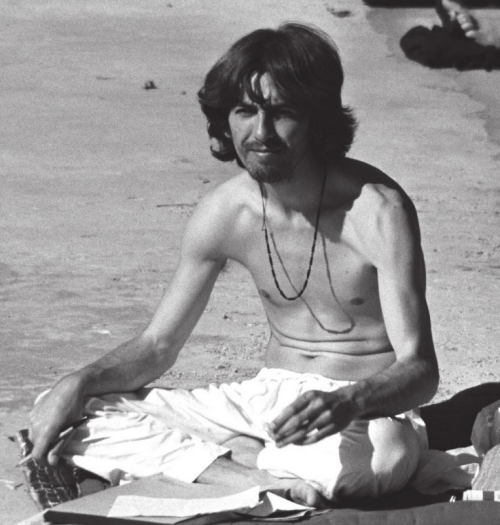
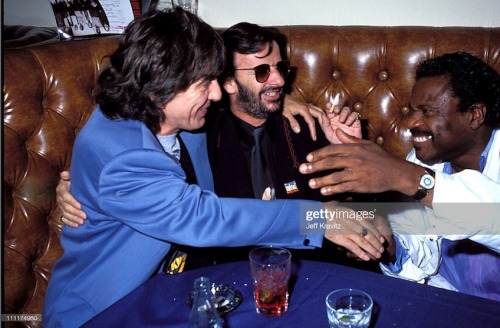
![George Harrison with Mukunda Goswami in Vrindavan, India, 1996. Photo by Prithu Prabhu (?).“[George] George Harrison with Mukunda Goswami in Vrindavan, India, 1996. Photo by Prithu Prabhu (?).“[George]](https://64.media.tumblr.com/7c6d46bfea7729437f304209fc6a91bb/d358e80bff222fe8-f9/s500x750/a4d3c82e9a6e61588121f2e36b3a14771433de20.png)
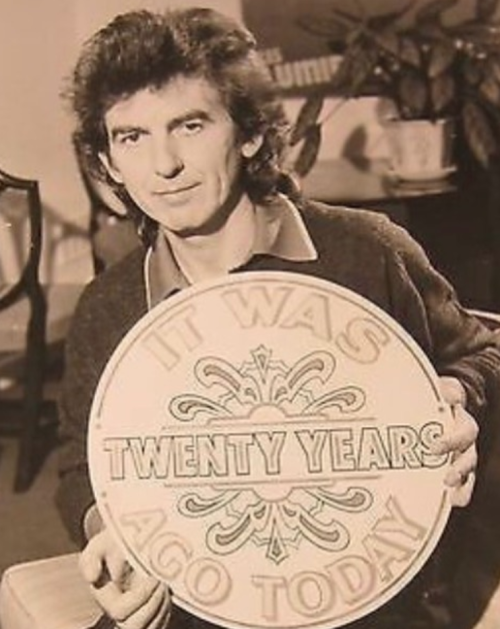
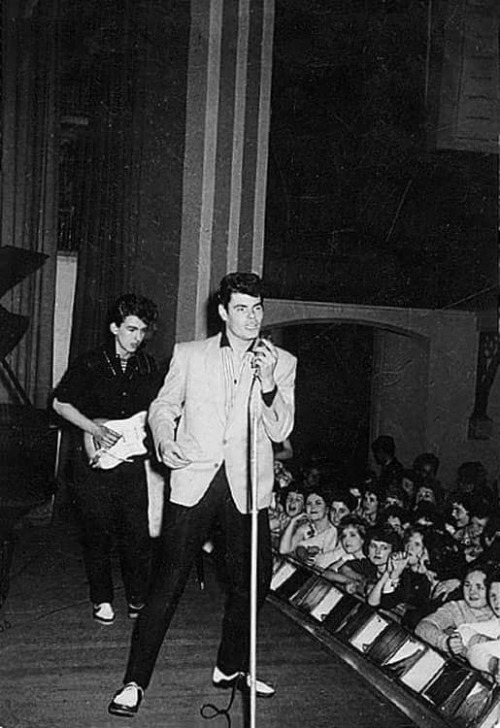
![George Harrison in the gardens of Friar Park, 1978. Photo by Mike Salisbury.“[George] thought that e George Harrison in the gardens of Friar Park, 1978. Photo by Mike Salisbury.“[George] thought that e](https://64.media.tumblr.com/e1b111de2abe993e84e38d6b8f567c35/987c0827a7156c58-c4/s500x750/d6e49bb81b45836e8820a8d5a83b8af644b46ab5.png)
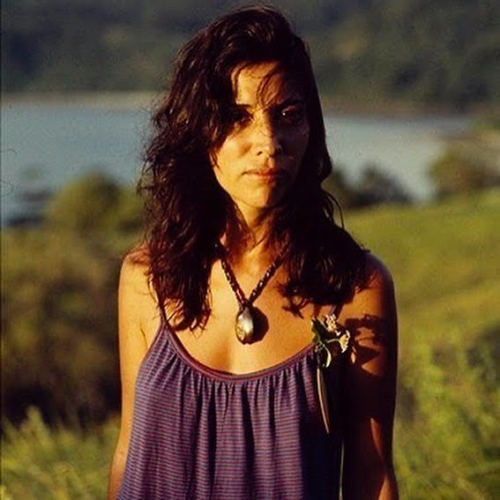

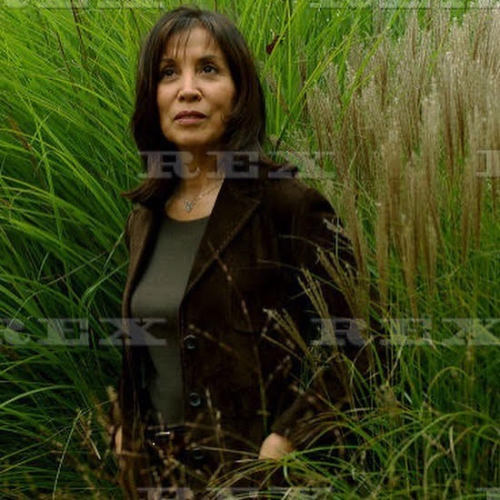


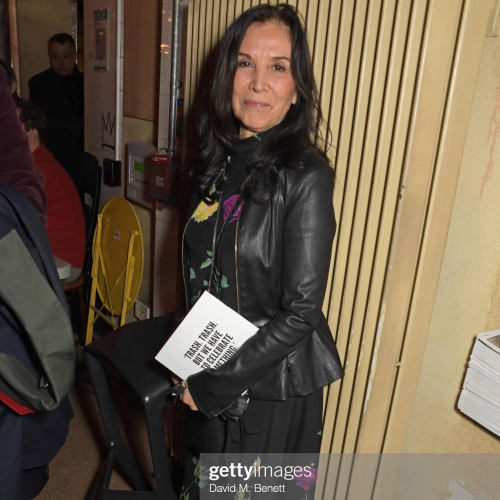


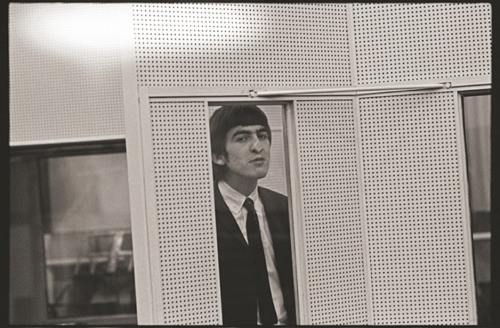
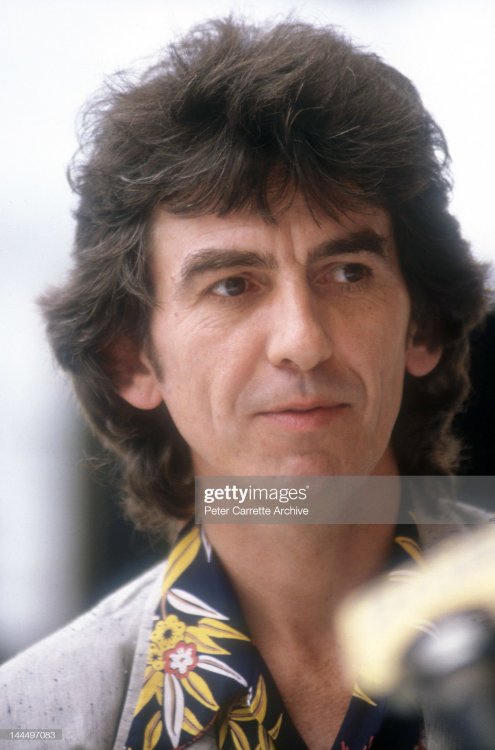
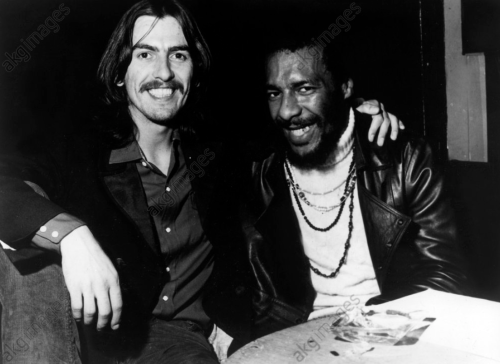
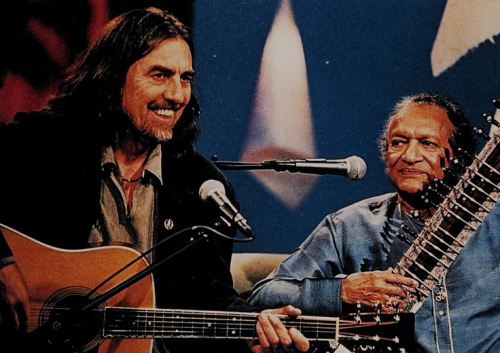
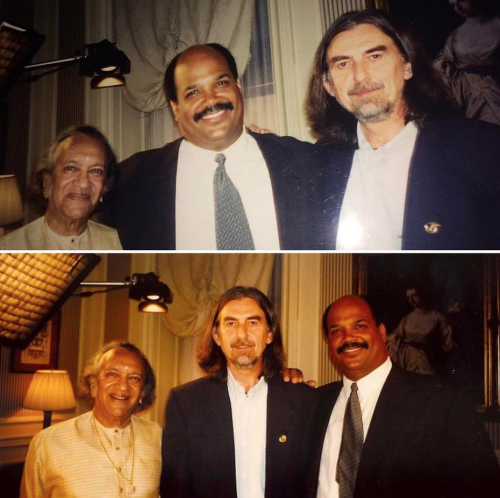


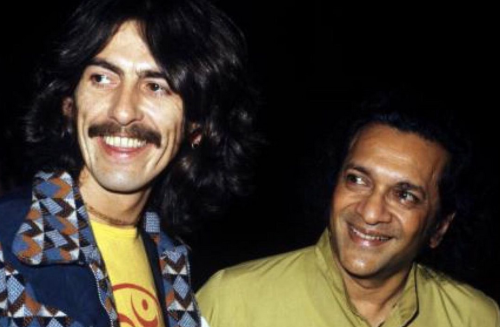
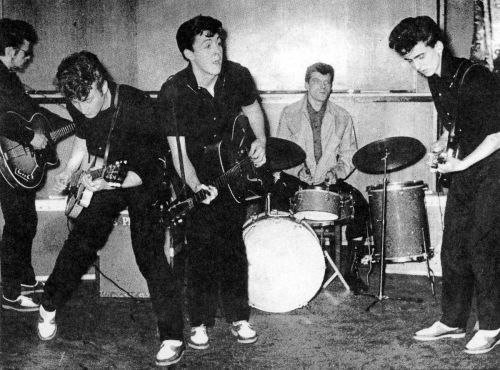
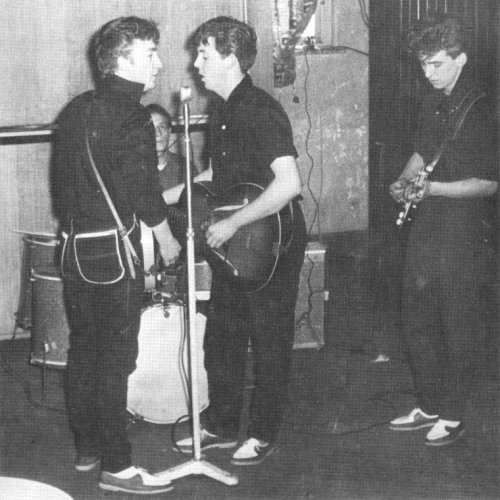
![Photo by Carolyn Jones.Q: “What did you learn musically from [George] Harrison?” Anoushka Shankar: “ Photo by Carolyn Jones.Q: “What did you learn musically from [George] Harrison?” Anoushka Shankar: “](https://64.media.tumblr.com/eeebd5a0efb74241536aa1dd3d8ecce2/8f64d83da21787db-a6/s500x750/4f9f7c6fd8337edcb8d78a2fb1da07cd7fdc505f.jpg)
